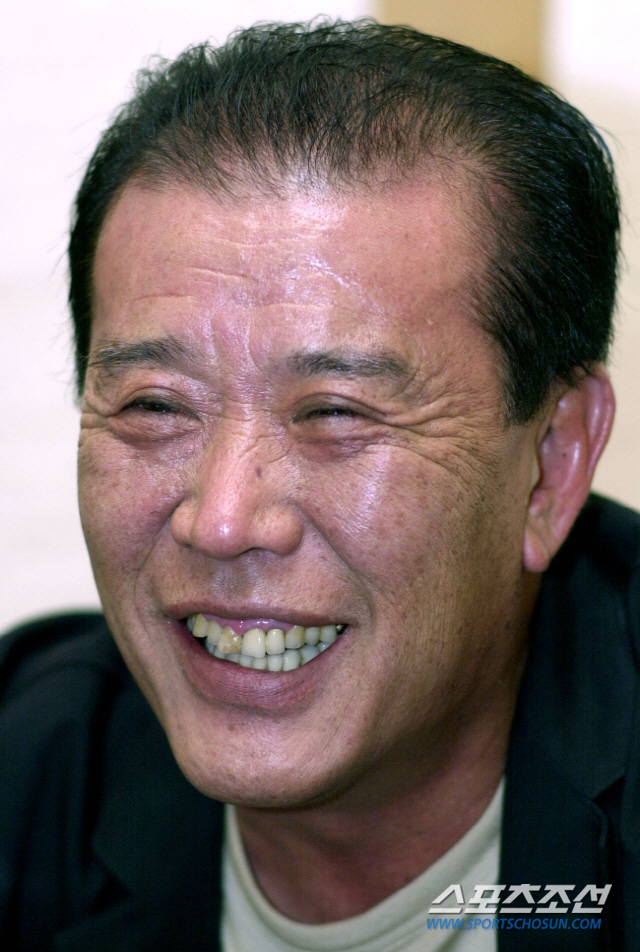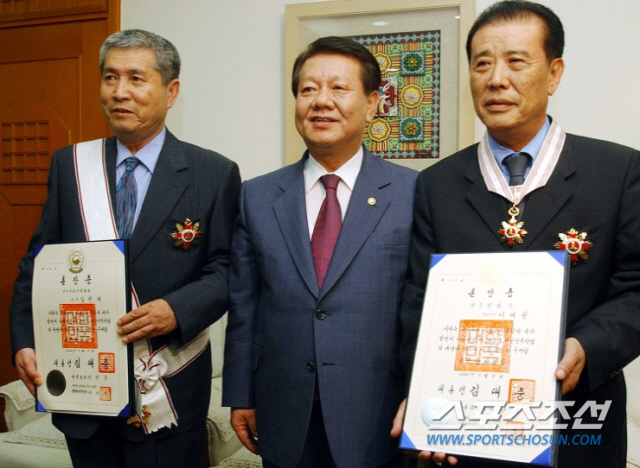"Dida the Star of the Film Industry..."The CEO of Itaewon, who created the "Sopyonje" today (24 Days) Death.


The former head of the film industry's bigot Itaewon Taeheung Film Company, who produced the films "Sopyonje", "JeA Je Baraje" and "The Son of General", died.
The late former CEO Itaewon died at Sinchon Severance Hospital in Seodaemun-gu, Seoul, on the afternoon of the 24 Days. The deceased suffered a fall in May last year and was hospitalized for about a year and seven months in the intensive care unit without consciousness.
The mortuary is set up in the third room of the same hospital, and the bereaved family members include his wife Lee Han-sook, his children, Hyo Seung, Ji Seung and Sun Hee.
The late Itaewon leader was born in 1938 into a well-to-do family in Pyongyang, but grew up in difficulties, falling apart from his family during the Korean War. After graduating from junior high school, he came to Busan and was once known to have been involved in the organization.
The deceased was brought into film production by a trader who happened to meet him in 1959, and his first film, "Yoo Jung Chon-ri", was born, but failed to win the box office. In 1983, he acquired a building in Uijeongbu, operated a theater in the building, re-established a kite with the film industry, and was responsible for the distribution of movies in Gyeonggi and Gangwon areas.
In 1984, he acquired Taechang Film Company, which was just before bankruptcy, and established 'Taeheung Film Company'. The deceased, who returned to the film producer in 20 years, met with director Im Kwon-taek as a "bigger", but the release was canceled due to Buddhist opposition. However, after establishing a relationship with Im Kwon-taek and director Jeong Il-sung, he was a companion to produce almost all the films of Im Kwon-taek.
In addition, the deceased was known for his name as 'between the knee and the knee', 'Pong', 'Happy Young Day', and since 1989, he has produced 'JeA Baraze', 'General's Son', 'Were received.
Among them, Kang Soo-yeon's "Aze Aze Baraze" is a work that depicts the life of a woman, and at the 16th Moscow Film Festival, Kang Soo-yeon was honored with winning the best actress award.
In addition, 'The Son of the General' and 'Sopyonje' exceeded 680,000 and 1 million people in Seoul, respectively, and both the work and the box office were captured. The first Korean film to surpass 1 million Seoul audiences was awarded the Best Director and Best Actress Award at the Shanghai International Film Festival, and Jang Sun-woo's "Hwa-kyung" won the Alfred Bauer Award at the Berlin International Film Festival.
In the 2000s, the deceased, who produced works by Im Kwon-taek, such as 'Chunhwa Line', 'Upper Life', and 'Chunhyang', first entered the Cannes Film Festival as 'Chunhyang'. It was the first Korean film to be featured in the Cannes Film Festival, but failed to win the award.
Two years later, however, at the 55th Cannes International Film Festival in 2002, Im Kwon-taek won the Best Director Award for the film "Chihwa Sun" and wrote a new history of Korean film.
The last film the deceased made was "Underly Life" (2004), directed by Im Kwon-taek and starring Cho Seung-woo. Since then, the deceased has expanded the 'Taeheung Cinema' in Uijeongbu from 2006 to 2014, and has spent his old age managing the copyrights of Taeheung Film Company.
The deceased, who produced a total of 37 films that will be long in the Korean film industry, was recognized for his achievement and won the Order of Okgwan Culture (1993), the Silver Pavilion Culture Medal (2003), the Youngpyeong Award for Special Producer (1988), the Daejong Award for Film Development Achievement Award (1994), the Chunsanungyu Film Festival Achievement Award (2002), the Baeksang Award for Arts (2003), and the Film Production Association Achievement Award (2014).